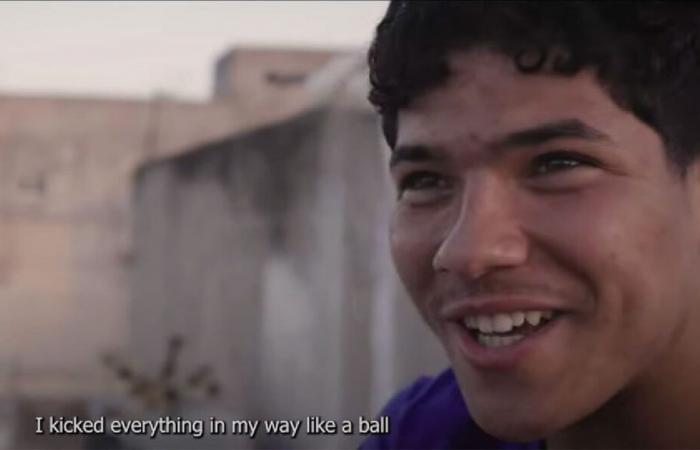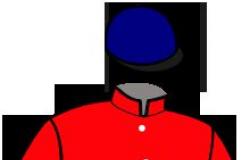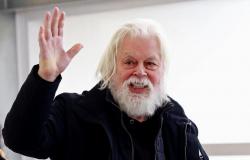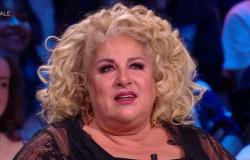Rayan is one of his most promising foals, around him, the director paints a collective portrait of a group of individuals who live day to day in a ruthless environment.
Hay Hlel, whose history dates back to the 1930s, is a district located a stone's throw from the center of Tunis. The photos have made it a den of delinquents almost closed to access, thus stigmatizing all its inhabitants. But Hay Hlel is above all a marginalized city, among others in the country which are forgotten and obscured by politicians. This negative image unfortunately has a hard surface and sticks to this neighborhood abandoned to its fate. After El Omrane in Sidi Bouzid (2013) and Jbal Jloud in Tunis (2011), this is where the director Abdallah Yahia decided to put his camera down for 4 years to try, through his documentary “Matula”, to come to put an end to these preconceived ideas, give voice to those who do not have one and shine a light on this cursed part of the country. “We are all Tunisians. Like everyone else, we are trying to get by and live with dignity. I do not deny the existence of crime in our neighborhood, but how be otherwise after so many years of political marginalization”, says very moved Douha Ben Salah, one of the protagonists of the film during the debate which followed its third and final screening which was held last Tuesday at the Zephyr La Marsa in the frame of the 35e JCC edition. The latter is an iron woman who supervises and takes young people from the neighborhood under her wing, doing everything to keep them away from delinquency through football. Rayan is one of her most promising foals that she follows very closely. He is the main protagonist of this 80' feature film selected in the official competition of the festival. Around him, the director paints a collective portrait of a group of individuals who live day to day in a ruthless environment. It is with a tight shot of the young boy that the documentary opens after a foreword made of an aerial view revealing a decor of chaotic concrete piles dominated by brick red preceded by a shot showing the passage of what looks like a crowd in protest. The color is launched. Nicknamed “Matula” by his friends in reference to an African footballer, Rayan lived with his grandparents after his parents crossed the Mediterranean illegally in 2011 to reach France. Having lived there for almost 14 years, they are still waiting for a response to their asylum request. Matula's story is that of these young people who carry within themselves the heavy burden of the hopes of the whole family. Everyone cherishes the dream that he will one day become an international football star, like his idol Cristiano Ronaldo. Selected as a junior at Esperance sportif in Tunis, he trains every day under the caring eye of his grandmother Samia. Abdallah Yahya and Moez Bhiri (executive producer and director of photography) followed Matula and his loved ones with their camera for 4 years, opening the doors to this forgotten world of Tunisia. Settings of misery between highway, railway, hill and the sebkha of Sijoumi where drugs and police violence wreak havoc, where the feeling of stigmatization and exclusion (the hogra) is omnipresent and where the link with the State is very fragile. A harsh reality that people try to escape by creating their own alternatives, moving towards the informal sector such as clandestine transport, kanoun pottery and even drug dealing. A cruel reality, from which a large part of young people escape by sinking into the vicious and infernal circle of subutex and other substances “whose circulation is permitted by the drug bigwigs”, an assertion which returns as a leitmotif in the movie. “In one week, I happened to attend the funerals of 5 of these young people that I tried to supervise and who were carried away by drugs,” says M.me Douha with bitterness echoing the sequences of funeral processions in the neighborhood under the “Allah Akbar” and other protest slogans that the police accompanied by firing tear gas bombs. The victims are mostly young people between 14 and 18 years old, cut down by an overdose or subjected to police abuse. In the midst of this chaos, strong minds sow flowers here and there in this arid urbanity, standing up against the drift. And in Abdallah Yahya’s film, these “guides” are all women. First there is Matula's grandmother Samia with whom he maintains a touching complicity made up of teasing, angry outbursts and a lot of recognition draped in youthful nonchalance. “She is the woman who raised me after my parents left for France, without her I would be lost. She gave me everything and another day, I will even favor her over my mother,” says Matula in tears, showing her name Samia, tattooed on her shoulder. And there is Dhouha Ben Salah who reinforces the grandmother's work. She is the president of the Hay Hlel-Mellassine Sport association. Created in 2011, this football association brings together young people between 6 and 18 years old. Despite financial and logistical difficulties, she invested in her neighborhood and was able to direct minors towards sporting activities. These women do everything to ensure that the 14-year-old does not follow the same dramatic path as the other young people in the neighborhood and ensure that he does not embark on a perilous and hopeless adventure, following the example of his parents. They haven't seen him for more than 13 years and he only knows his younger brother and sister through the screen of his phone. We learn at the end of the film that attempts to allow him to visit them have still not succeeded. In the meantime, the young boy, deprived of his parents' presence and love, clings to his only lifeline, football, and hopes for more involvement from state officials and why not for lack of those of Esperance sportive de Tunis. This North so dreamed of by people from the South, many young people from Hay Hlel see it as the only alternative to the vicious circle of poverty, stigma, police violence and drugs. But reality is far from always conforming to their fantasies, nourished by the walks they take from time to time, in the streets of Paris and other cities via a virtual reality headset…
An essential work to see absolutely!






